Diabetes burden in Africa
Introduction
It was reported by the International Diabetes Federation (IDF) that, in 2021, 24 million people aged 20–79 had diabetes in the Africa Region. In addition, this figure was projected to rise by 129% by the year 2045. [1]
Prevalence (%) of Diabetes in Africa [1]
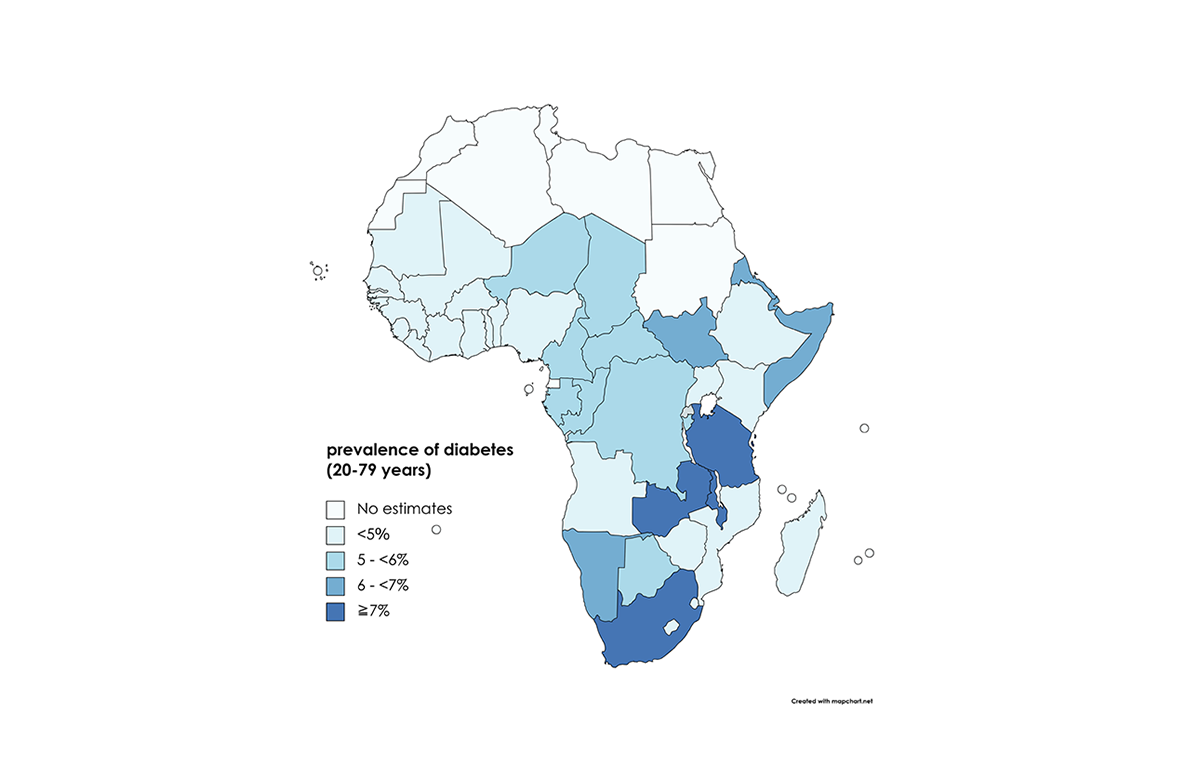
1. By 2045, there will be 55 million people with diabetes in Africa. [1]
2. In 2021, diabetes alone contributed to 416,000 fatalities in Africa. 40% of diabetic patients developed Chronic Kidney Disease (CKD) worldwide. [1][2][3]
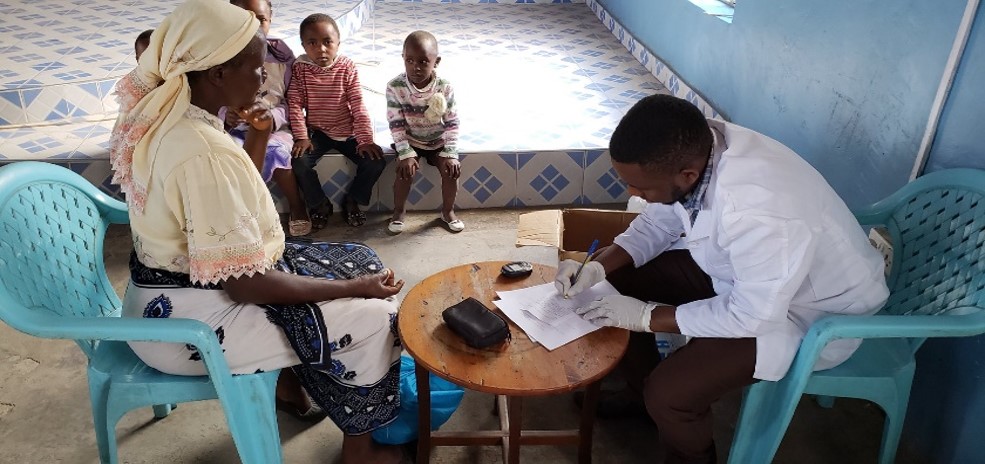
Photo of a diabetic patient receiving treatment at a rural clinic in Africa
Main factors leading to high rise in diabetes patients in Africa [4]
1. Lifestyle change: unhealthy diet and lack of physical activity or exercise
2. Rise in ageing population
Complications from Diabetes
CKD is one of the most common diabetic complications in Africa. CKD is defined as decreased kidney function with a low glomerular filtration rate (GFR) of less than 60 mL/min per 1.73 m2. In addition, creatinine and electrolytes are tested to assess kidney function. CKD often gets worse and can lead to kidney failure. A person with kidney failure will need routine dialysis. [5] [6] [7]
Routine kidney testing enables early detection of CKD before it is too late and can also assist in identifying other health complications.
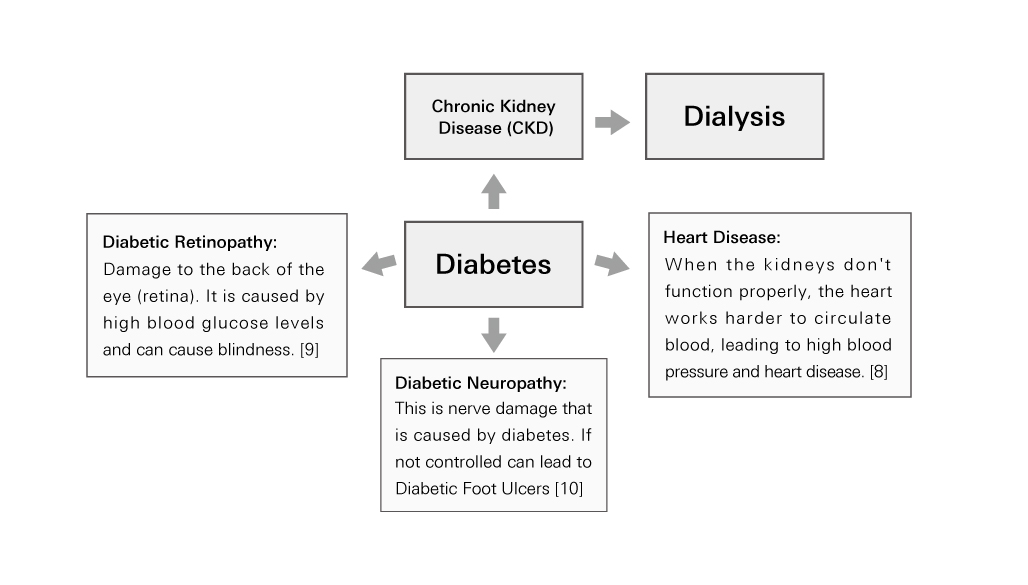
Hemodialysis poses a financial burden: The case of Kenya
The average cost per hemodialysis session in Kenya was 40 US$ in public hospitals and 80 US$ in private hospitals. As a result, the average monthly cost for a patient who needs three dialyses per week (or 156 dialyses per year) is approximately 450 - 920 US$ (average of US$ 685). But the average biochemistry test costs 28 US$ per month, meaning that it is far less expensive to monitor kidney and liver function than dialysis. [11][12]
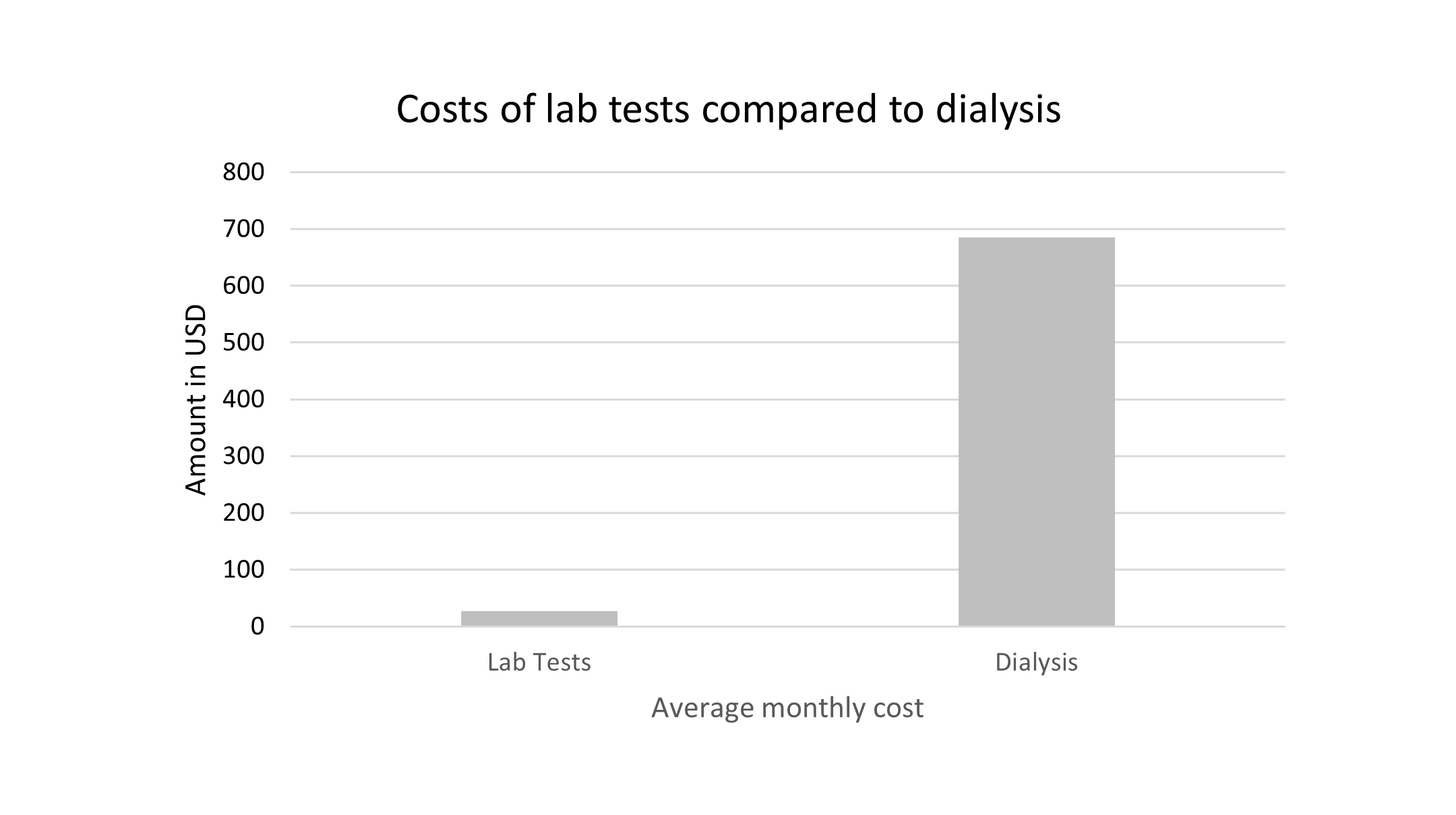
The graph emphasizes how important routine liver and kidney tests are for preventing organ damage. As a result, the patient's kidney injury will not advance to stages 4 or 5, where dialysis is the recommended treatment. In turn, the patient might lead a healthier and more productive life. Also, they will be spared from having to pay the high costs of dialysis and other medical procedures.
Why is routine medical testing a challenge in Africa?
There are a lot of challenges that prevent routine medical testing from being performed in most rural areas. Some of these challenges include;
- Lack of medical devices
- Shortage of technical staff, for example, lab techs and nurses
- Lack of stable water supply
- The whole reagent bottle is opened, even when only a few patients need testing, resulting in unnecessary waste of reagents.
- Unstable power supply
- Lack of space to install large analyzer in remote area
The Lab 004 Dry Chemistry analyzer
The Lab 004 is most suited for use in healthcare facilities or hospitals in remote areas with limited resources.
Featured tests:ALT (GPT), AST (GOT), BUN, CA, CRE, UA,
- Low cost and suited for resource-limited settings
- Simple to calibrate and use
- No need for water supply
- Test strips are packaged individually to maintain reagent integrity, thereby reducing unnecessary waste of reagents.
- Mobile battery is available
- Portable Size: A5 paper size and weighs less than 1 kg
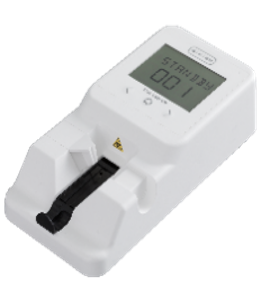
Sources
[1]Diabetes in Africa. (International Diabetes Federation.)
https://www.idf.org/our-network/regions-members/africa/diabetes-in-africa.html
[2] Alicic RZ, Rooney MT, Tuttle KR. Diabetic Kidney Disease: Challenges, Progress, and Possibilities. Clin J Am Soc Nephrol. 2017 7;12(12):2032-2045.
[3]Hanouneh, M., Echouffo Tcheugui, J.B. & Jaar, B.G. Recent advances in diabetic kidney disease. Int J Mol Sci. 2021 1;22(21):11857.
[4]Diabetes increasing at alarming rates in sub-Saharan Africa. (HARVARD T.H.CHAN. )
https://www.hsph.harvard.edu/news/press-releases/diabetes-in-africa/
[5]Janmohamed, M.N., Kalluvya, S.E., Mueller, A. et al. Prevalence of chronic kidney disease in diabetic adult out-patients in Tanzania. BMC Nephrol. 2016 8;17(1):71.
[6] Anna Forbes, Hugh Gallagher. Chronic kidney disease in adults: assessment and management. Clin Med (Lond). 2020 20(2): 128–132.
[7] Creatinine and eGFR CKD-EPI. (NHS)
https://www.gloshospitals.nhs.uk/our-services/services-we-offer/pathology/tests-and-investigations/creatinine-and-egfr-ckd-epi/
[8] The Surprising Link Between Chronic Kidney Disease, Diabetes, and Heart Disease. (Centers for Disease Control and Prevention.)
https://www.cdc.gov/kidneydisease/publications-resources/link-between-ckd-diabetes-heart-disease.html
[9]Overview Diabetic retinopathy. (NHS)
https://www.nhs.uk/conditions/diabetic-retinopathy/
[10] Diabetic Foot Infections. (National Library of Medicine)
https://www.ncbi.nlm.nih.gov/books/NBK441914/
[11]Subramanian S, Gakunga R, Kibachio J, et al. Cost and affordability of non-communicable disease screening, diagnosis and treatment in Kenya: Patient payments in the private and public sectors. PLoS One. 2018 5;13(1):e0190113.
[12]Lab Tests Prices in Kenya (Updated 2022), (Labtestzote.com)
https://www.labtestzote.com/services/lab-tests-prices-in-kenya-2022/
AG230711-01

